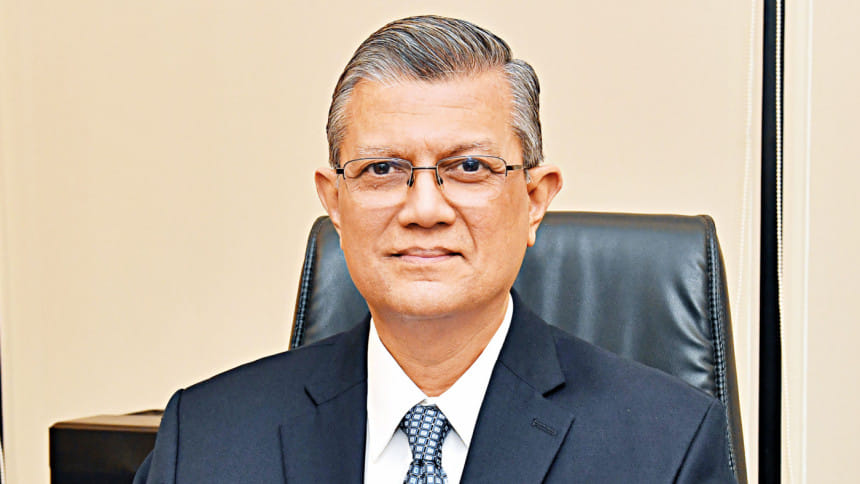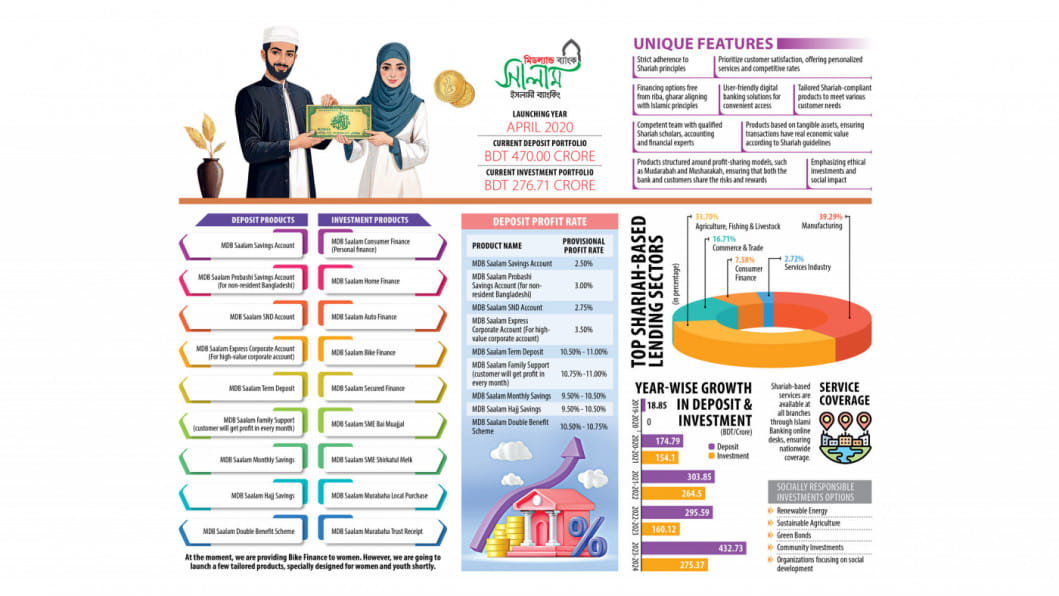Improve Digital Capabilities of Islamic Banks

TDS: What is the current state of Islamic banking in Bangladesh?
Md. Ahsan-uz Zaman (MAZ): Islamic banking has made a major contribution towards the economic development of Bangladesh. The sector has experienced strong growth and expansion on the back of public demand for it within our Muslim-majority population, and it now accounts for around 26.23% of deposits and 28.24% of investments in the total banking sector. The government has been supportive of the growth of Islamic banking in Bangladesh. Overall, the industry has been expanding, with an increasing number of customers opting for Islamic banking products due to their adherence to ethical and religious principles.
Midland Bank started offering Shariah-based banking services in April 2020 through an Islamic Banking Window license from Bangladesh Bank under the name of MIDLAND BANK SAALAM. The Shariah banking services are supervised by a Shariah Supervisory Council comprised of highly experienced Islamic educationists who are experts in their respective fields.
TDS: What types of Shariah-compliant services does your bank offer?
MAZ: Midland Bank offers a variety of Shariah-compliant financial services and products to cater to the needs of its customers. These include:
• Al-Wadeeah: The bank takes permission from depositors for utilizing their money and commits to refunding it whenever demanded by the customers. Customers can withdraw money as many times as they want. No profit is disbursed in these accounts, and depositors do not bear any loss.
• Mudarabah: This is a profit-sharing arrangement where one party provides the capital, and the other party provides expertise and management. The profits generated are shared according to an agreed-upon ratio.
• Murabaha: This is a cost-plus financing arrangement where the bank buys an asset at the request of the customer and sells it to the customer at a marked-up price.
• Bai Muajjal: This is a contract between the bank and customer where the bank buys a certain good at the request of the customer and sells the same to the customer at an agreed fixed price, payable at a fixed future date in a lump sum or within a fixed period by fixed instalments.
TDS: What challenges does Islamic banking currently face that need to be addressed?
MAZ: Islamic banking in Bangladesh faces several challenges that need to be addressed to ensure its growth and sustainability. Some of the key challenges include:
• Lack of Awareness: Limited awareness of Islamic banking principles in Bangladesh hinders its growth; increasing education and marketing efforts is essential.
• Limited Product Diversity: Islamic banks in Bangladesh offer fewer products than conventional banks; expanding offerings could attract more customers.
• Shortage of Skilled Professionals: The shortage of skilled professionals with expertise in Islamic finance is a barrier to the growth of Islamic banking in Bangladesh.
• Competitive Landscape: Islamic banks face strong competition from conventional banks; innovation and competitive products can help them stand out.
• Technological Infrastructure: Improving the technological infrastructure and digital capabilities of Islamic banks is crucial.
• Lack of Sukuk and Other Shariah-Compliant Investment Options: Islamic banks often struggle to invest their surplus funds due to a lack of Shariah-compliant investment opportunities, such as Sukuk.
TDS: Do you have any plans to add more features to the Islamic banking channel in your bank to enhance customer service?
MAZ: We are planning to add more features to our Islamic banking channel that will enhance our customer service as well.
• Digital Transformation and Online Service: We are investing in technology to offer services that are user-friendly and accessible to customers.
• Shariah-Compliant Investment Opportunities: We plan to introduce new Shariah-compliant investment products and services to cater to diverse customer needs, such as Parallel Salam.
• Financial Education: We will offer financial literacy programmes and resources to help customers better understand Islamic banking principles and make informed financial decisions. This can empower customers to manage their finances effectively.
TDS: What are the prospects for the overall growth of Islamic banking in the country?
MAZ: Islamic banking in Bangladesh has shown significant growth potential in recent years, and the prospects for further development are promising. Some key factors contributing to the growth of Islamic banking in Bangladesh include:
• Government Support: The government of Bangladesh has been supportive of Islamic banking and has taken measures to promote the industry, such as issuing guidelines and regulations to ensure the proper functioning of Islamic financial institutions.
• Growing Awareness: There is a growing awareness among the population in Bangladesh about Islamic banking principles and the benefits of Shariah-compliant financial products.
• Innovative Products: Islamic banks in Bangladesh have been introducing innovative Shariah-compliant products and services to meet the evolving needs of customers.
• Economic Stability: Bangladesh has experienced steady economic growth in recent years, which has created opportunities for Islamic banks to expand their operations and tap into new markets.


 For all latest news, follow The Daily Star's Google News channel.
For all latest news, follow The Daily Star's Google News channel. 



Comments